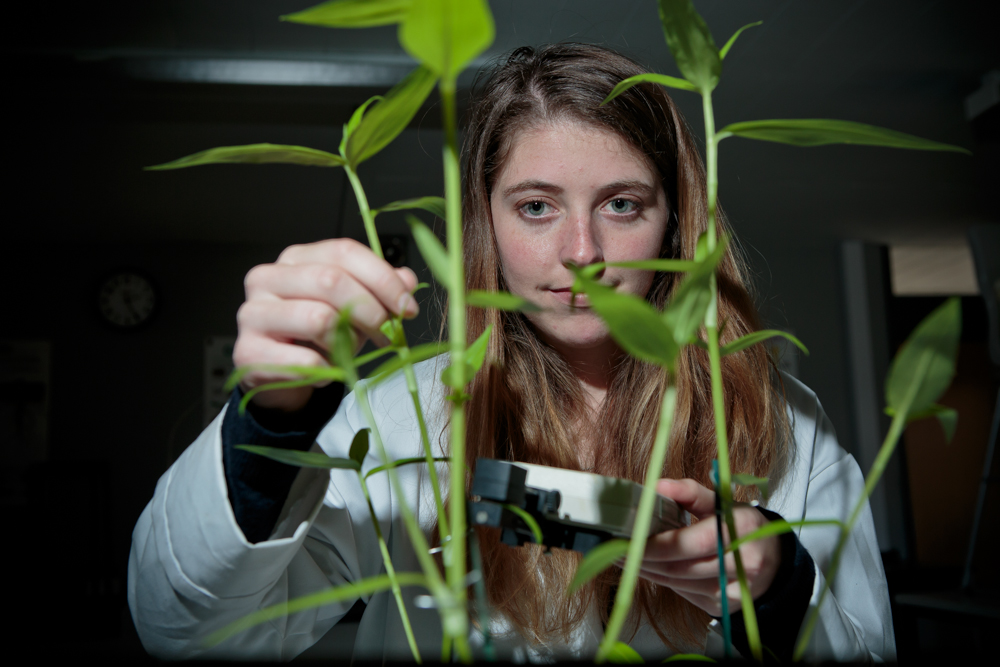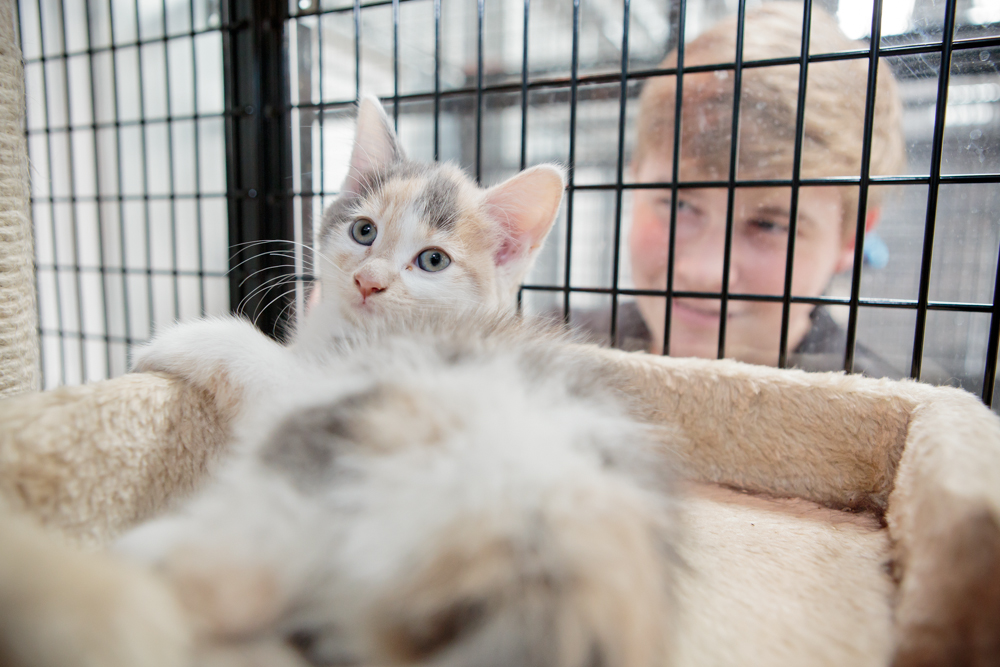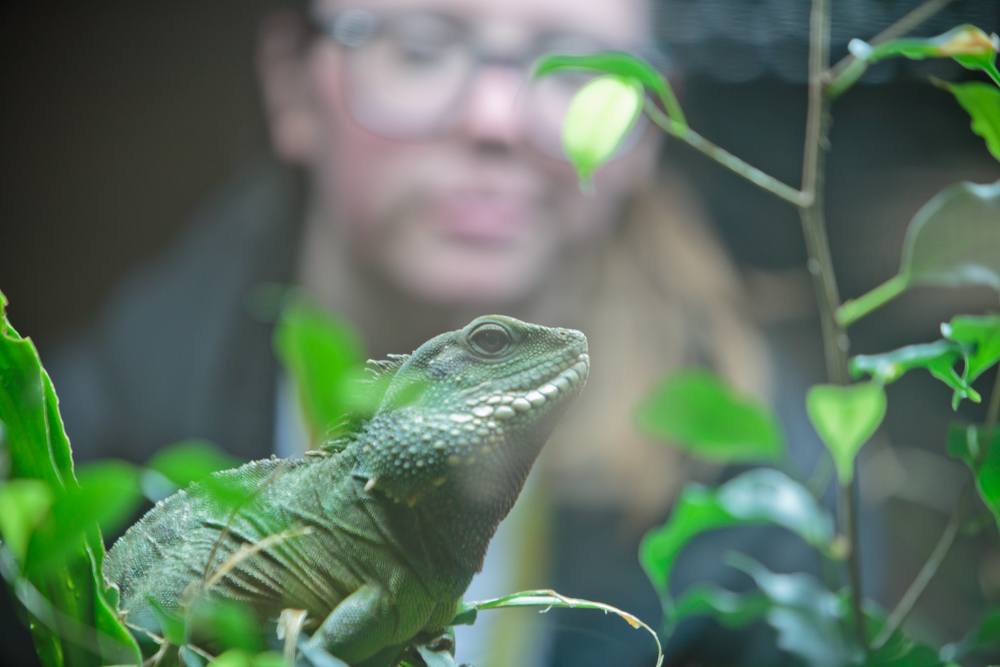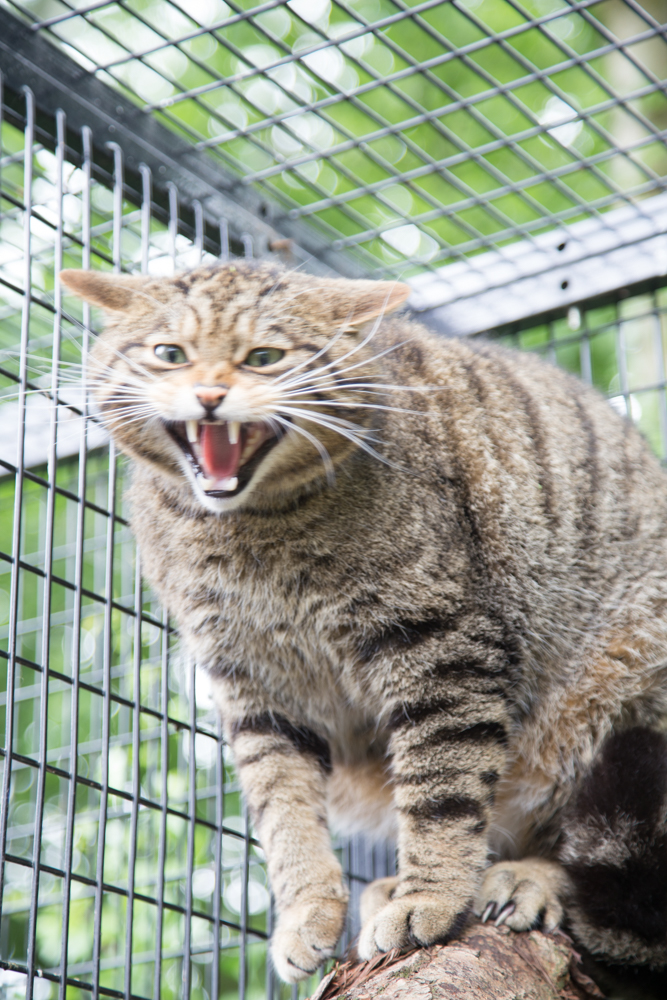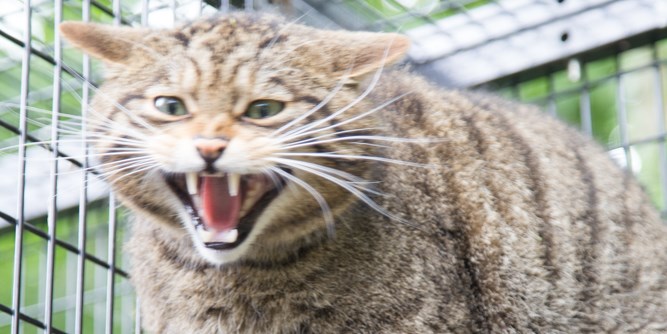Course modules
Year 1
Animal Anatomy and Physiology
The module aims to enable the students to describe the natural anatomical and physiological mechanisms that control behaviour, reproduction and defence against disease and impact on an animal’s welfare.
Animal Health and Nutrition (1.5 module)
The module will discuss the aetiology of diseases and associated characteristics. The module will develop plans for animal health enhancement and disease control strategies and introduce the concept of pharmacological control. This module also aims to explore the biological and biochemical principles which underpin animal nutrition and further develop scientific knowledge as a basis for the continuing acquisition of information. The module will develop a critical interest in current applied research in animal health and nutrition and how this may be applied to practical animal feeding management and production with due consideration to commercial, health, environmental and welfare factors.
Animal Husbandry and Training (1.5 module)
This module aims to develop a practical appreciation of the natural behaviour patterns of captive animals considering environmental effects of housing, handling and management practices.
Practical Animal and Professional Skills
This module aims to develop student academic, cognitive, professional, industry, digital and transferable skills in order to help the transition from further to higher education and from dependent to independent learning. These skills will be developed in the subject specific context in conjunction with other modules and will underpin subsequent years of study. Through personal development, the module also aims to aid future graduate employability potential and will provide the foundation for further development through study on the ‘Research Methods’ module at Level 5 and ‘Research Project’ at Level 6.
Introduction to Animal Welfare
This module aims to introduce learners to the field of animal welfare. Current welfare guidelines and policy will be explored in order to develop an appreciation of how welfare principles apply to different aspects of the animal industry. Ethical principles will also be debated and discussed in relation to animal welfare and how these could be applied throughout the course.
Animal Behaviour and Training
This module aims to develop a practical appreciation of the natural behaviour patterns of animals considering environmental effects. Alongside understanding the principles of species and breed specific factors affecting the animals’ behaviour, this module will examine how these can be adapted as part of a training regime to meet the complex and varied roles demanded of animals. The module will outline the biological principles of animal behaviour and develop an appreciation of current animal behaviour issues. Current applied research will be used to develop scientific knowledge in animal behaviour and will allow students to apply this knowledge to the diverse roles of animals in society and the role of the animal caretaker in forming behavioural responses in the animal.
Year 2
Animal Welfare and Legislation (Double module)
The module aims to develop a broad understanding of the principles which are used to determine animal welfare and of their relevant welfare legislation. The module will allow the learner to develop scientific knowledge that will act as a basis for the continuing acquisition of information in relation to animal welfare and legislation whilst developing an interest in current applied research in both fields. Current industry concerns of animal welfare will be considered in this module linking animal’s needs with housing and husbandry practices. Current legislation and husbandry recommendations will be considered allowing for the appreciation of their practical application and management across the animal industry. The module will build on theory learnt in the Level 4 module Introduction to Animal Behaviour allowing for industry standards to be discussed and critical evaluation to be developed.
Applied Animal Behaviour
This module aims to introduce students to the physiological processes that allow organisms to demonstrate a co-ordinated response to both internal and external stimuli. This module will provide an insight into the methods of control exerted by the endocrine and nervous systems and how they are affected by environmental influences. The module also introduces the proposal, planning and implementation of a behavioural trial.
Genetics and Breeding
In order to be successful at breeding animals for a variety of roles, it is important that students have a broad understanding of the biological principles which underlie animal breeding. This will enable students to further develop their scientific knowledge and act as a basis for the continuing acquisition of information throughout their careers. The module will be taught so that a critical interest in current applied research in animal breeding will be developed and an understanding of how these principles and developments may be applied to practical animal management will be examined with due consideration to commercial, health, environmental and welfare factors.
Research Methods
An understanding of the methods we use to collect data and the subsequent analysis techniques is a fundamental part of functioning within a scientific discipline. Furthermore, technical professions require graduates who can solve problems through the use of background research and are capable of testing concepts using the appropriate methods. The module examines experimental design and the validity of the findings. Students will be taught to design experiments so that the data collected can be assessed for accuracy and reliability. The appropriateness of a range of investigational methods will be explored together with suitable data analysis techniques. The module will enable students to develop a scientific approach to problem solving, which can act as a firm foundation for appraising research throughout their careers. They will gain an understanding of appropriate and inappropriate experimental design and this will enable a critical evaluation of investigational methodology and so enable the student to both conduct, and evaluate the quality of, investigations in their area of study.
Biological Basis of Behaviour
This module aims to introduce students to the physiological processes that allow organisms to demonstrate a co-ordinated response to both internal and external stimuli. This module will provide an insight into the methods of control exerted by the endocrine and nervous systems. The module will explore the relationship between different regions of the brain and behavioural control. The essential stages in the reception and conduction of a range of biological stimuli will be examined, in particular the biological importance of pain and how painful stimuli are generated and detected. Students will also be introduced to the essential components of the endocrine systems and principles of hormonal secretion and feedback control, and relate to different aspects of behaviour.
Year 3
Behavioural Ecology
This module examines the adaptive value of behaviour to enhance survival by exploiting resources, avoiding predators and maximising reproductive success. This module aims to explore the idea that behaviours are part of strategies to maximise reproductive success. The costs and benefits of alternative strategies to predict optimal strategies will be evaluated. The module will examine various life history strategies in a fluctuating environment and discuss the implausibility of the concept of group selection. General skills objectives of the module are to further develop competence in analytical and critical thinking, communication, numeracy and data analysis, information gathering and time management.
Research Project (Double module)
The aims of this double-weighted module is to equip students with the ability to understand and define clearly a problem to be solved and extract relevant material from a literature survey. Also to develop the ability to design and undertake an original investigation and to further develop the ability to present, analyse and interpret results. Students should also develop the ability to present a coherent, critical account of the work and how it relates to that of others; develop management skills; achieve a measure of independence and integrate the different aspects of the course and will be provided with e an opportunity to develop a programme of supervised independent research leading to the presentation of a substantial written Project.
Innovations in Animal Research (Double module)
This module aims to examine current innovations in animal behavioural, psychological, and physiological research and in the development of practical management strategies across the animal industry. Through a range of research skills and within the critical evaluation of management practices, this module aims to develop fundamental research skills exploring key trends in industry and building on employability skills. Students are expected to carry out a group project of their choice to understand, apply and analyse key trends and to suggest future improvements and recommendations. Furthermore, the module aims to consider subject-specific impacts on normal animal husbandry and management decisions whilst ensuring animal welfare is of an utmost priority. The module aims to investigate and evaluate current industry-specific issues for chosen species including companion, farm, wild and zoo-based individuals whilst developing learner skills in effective communication with peers and industry representatives.
Companion Animal Science
This module aims to explore the evolution and domestication of companion animals. The ontogeny and importance of behaviour will be discussed. The module will investigate the importance of social behaviour between individuals of the same species and in human/animal interactions. This module will also explore the causation and control of behavioural problems of companion animals.
Entry requirements & additional information
- Entry requirements
- Learning and assessment
- Progression
- Careers
- Professional accreditations
- Learning support
- Special requirements
Entry requirements
5 GCSE passes at Grade C (4) or above (including Maths and English or equivalent)
Plus 104 UCAS Tariff points from one or more of the following:
- 3 A-levels (A2) at C or above
- BTEC/C&G Level 3
- 4 Scottish Highers at C or above
- 4 Irish Highers at C or above
- International Baccalaureate at 24 points
- Access to HE Diploma in a relevant discipline
AS levels, BTEC Subsidiary Diploma and Scottish Intermediate 2s may be used to contribute to entry requirements but they are not sufficient for entry on their own. Alternative equivalent qualifications will also be considered positively.
Applicants who believe they may be eligible for Accreditation of Prior Certificated and/or Experiential Learning (APCL/APEL) for certain modules will be considered on an individual basis.
Applicants for whom English is a second language must be able to demonstrate proof of International English Language Testing System (IELTS) at level 6.0 (with no component score lower than 5.5) or equivalent.
All offers may be subject to successful interview.
Learning and assessment
Learning Environment:
Learning activities on the course are diverse, including lectures, seminars, tutorials, practical sessions and workshops.
Students are expected to undertake extensive independent study and research to support lectures, seminars and assessments. Group work and group presentations form an important part of the course. Students will have access to specialist IT hardware and software, an on-line learning environment and reference facility.
Assessment:
Students will complete a variety of assessments including examinations and tests, practical assessments, essays, presentations, reports and group work.
Additional Information:
The course may involve visits or lectures delivered by external speakers who will outline the work/research interests of the various organisations they represent. This provides an excellent opportunity to find out about both the technical issues and developments being discussed and the employment and career opportunities available in the various fields.
What work experience can I get?
There is no formal work placement on this course but the programme does offer the flexibility to gain additional experience during the course, where students have opportunity to undertake extra-curricular work experience or internships with employers throughout the UK and overseas.
Progression
Progression:
On successful completion of the course, students may apply for postgraduate study programmes such as MSc, M Phil, PhD or PGCE.
Careers
What careers can you follow?
Graduates will be in a position to apply for posts in the animal and related industries with examples of possible careers including:
Training assistance dogs
Welfare inspectors
Zoological education/research/keeping
Research and development
Local authority/Defra/HM customs animal welfare officers
Pet behaviour advisors
Professional accreditations
All students are encouraged to pursue membership of the Association for the Study of Animal Behaviour (ASAB) and British Society of Animal Science (BSAS) as well as pursuing scholarships and travel awards with other professional animal organisations.
Learning support
You can contact the College Inclusive Learning team or UCLan Student Services (or let one of the course team know that you have a disability or an issue related to your disability). With your agreement information will be passed on to the relevant service
Special requirements
Laboratory coats are required for practical laboratory sessions. Waterproof clothing for field and farm work and outdoor visits. A black warehouse coat is essential for working on the Animal Centre and can be purchased from the on-line Myerscough Shop. Dark coloured combat trousers are also recommended.
Extra Costs:
Additional costs for items that are essential for the course:
- Black Warehouse Coat - £15
- Laboratory Coat - £12
- Waterproofs and boots £50
Additional costs for opportunities and items that are optional for the course include:
· Field Study trip to South Africa £3,500
Latest news, Animal studies
-
Degree students share their research projects at Graduate Showcase
- Published
- Friday 26 April
-
SUCCESS STORY: There’s nothing ‘mini’ about Emily’s animal ambitions
- Published
- Wednesday 24 April
-
Kirsty Aspinall
- Published
- Monday 11 Dec 2023
-
Higher education Research Expo a success
- Published
- Friday 17 Nov 2023
-
An unforgettable South Africa experience for animal studies students
- Published
- Friday 18 Aug 2023
